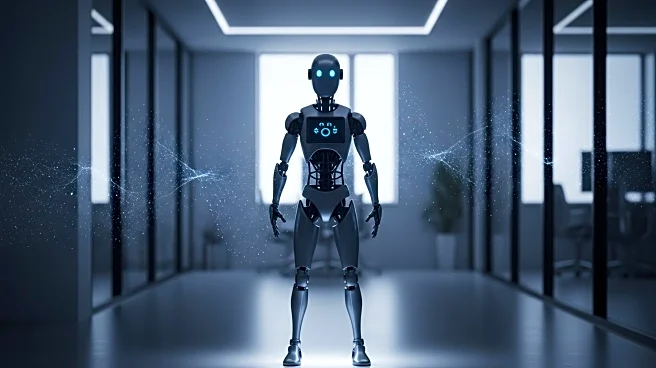What's Happening?
Agentic AI is gaining traction in the HR sector, with a significant number of HR leaders planning to implement AI capabilities within the next year. According to a Gartner survey conducted in May 2025, 82% of HR leaders intend to adopt agentic AI, which includes AI assistants and AI agents. By 2030, it is estimated that 50% of HR activities will be automated or performed by AI agents, fundamentally altering HR roles and workflows. Agentic AI refers to autonomous or semi-autonomous software entities that can perceive their environment, make decisions, and act on behalf of users. This technology is expected to streamline processes such as recruitment, where AI agents can automate candidate sourcing and screening.
Why It's Important?
The adoption of agentic AI in HR is poised to significantly impact the industry by enhancing efficiency and transforming traditional roles. As AI agents take on more complex tasks, HR professionals may shift from executing workflows to managing AI solutions. This transition could redefine job roles, necessitate new skills, and alter service delivery methods. Organizations that successfully integrate agentic AI stand to benefit from improved business outcomes and a more personalized candidate experience. However, HR leaders must navigate the hype and ensure they are investing in genuine AI capabilities rather than rebranded virtual assistants.
What's Next?
As agentic AI continues to evolve, HR leaders will need to assess its impact on workforce roles and organizational culture. The technology is still in exploratory phases, but its potential for disruption is significant. HR leaders project that agentic AI could replace approximately 9% of their workforce within two years. To maximize benefits, organizations must understand the limitations and capabilities of agentic AI and work with business and IT leaders to ensure a human-centric approach to its implementation.









